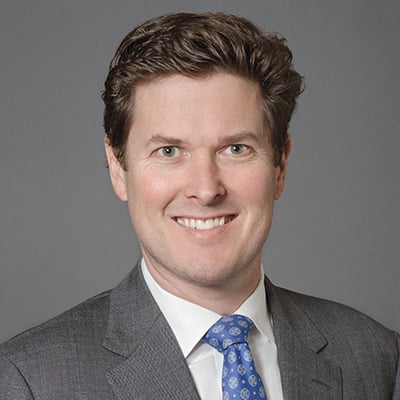Chancery OKs $17.5M Deal To End Sterling Chemical Sale Row
A Delaware Chancery judge gave the green light Friday to a $17.5 million deal resolving the challenge to Eastman Chemical Co.’s $100 million purchase of Sterling Chemicals Inc., a settlement that included more than $3 million in attorneys’ fees and a special award to class representative Virtus Capital LP.
During a hearing in Wilmington, Vice Chancellor J. Travis Laster said the figures associated with the overall settlement fell “within the range of reasonableness,” commenting that the claims at the pleading stage that Eastman acquired Sterling for a lowball price in a deal rife with conflicts and impropriety were “quite strong.”
But had the case gone to trial, it may have been an arduous and expensive one with several fact issues to litigate and a hefty hurdle over showing intent to engage in wrongdoing, making the settlement “significant and real compensation,” Vice Chancellor Laster said from the bench.
The vice chancellor said he was more skeptical over the fee award, particularly the $350,000 requested as a special award for Virtus Capital’s contribution to the case. The figure appeared justified, but might set off a chain reaction of precedent that pushes the price of such awards upward for cases with much less merit, Vice Chancellor Laster said.
“I think there is a reason to give something meaningful, but don’t have a framework to do it,” the vice chancellor said. “I’d like an external structure that is more than just a number popping out of the air or a sort of gut check.”
Special award requests are not uncommon in the Chancery Court, but usually orders of magnitude lower. In Virtus' case, the asset manager was the first shareholder to lodge a class action, suing Eastman in 2014 and a long list of Sterling investors and insiders, claiming that the buyer “corrupted a sale process by systematically exploiting conflicts of Sterling’s fiduciaries and financial advisers so that it could acquire a unique and highly valuable petrochemicals facility for a fraction of its fair value.”
The merger was valued at about $100 million, but suing shareholders claimed it could be worth anywhere from $200 million to $1 billion.
During years of discovery and depositions, Virtus claimed to have learned that Sterling’s manufacturing operations vice president, Walter Treybig, allegedly leaked confidential information to Eastman and other bidders, as well as other accused fiduciary breaches.
The shareholder faced trouble of its own during the proceedings, and was ordered to pay $85,000 for sanctions and attorneys' fees in connection with opposing side motions to compel production of documents.
Eastman had also fought the assignment of class lead status to Virtus, arguing that one of its principals, Steven Gidumal, is a former Sterling director and a former chief investment officer for Sterling’s majority private equity shareholder, Resurgence Asset Management LP.
Resurgence was the shareholder accused in both suits of rushing Sterling into the sale because the asset management company had run into financial trouble in 2009. Gidumal, whose position with Resurgence was terminated in 2008, still faces a separate civil action in New York filed by Resurgence, accusing him of using proprietary information to secure Sterling shares for Virtus.
Part of the settlement focuses directly on Gidumal, who was criticized by Eastman for alleged failures to intervene in the $100 million sale. According to the settlement, both Gidumal and Virtus agreed not to participate in any federal securities actions involving Sterling.
After pondering the special award in chambers for nearly a half-hour Friday, Vice Chancellor Laster returned to the bench to grant the entire amount, saying that having a sophisticated party contributing to the case added value and allowed the litigation to focus on serious claims with some merit.
“This was not a lawyer-driven case where a lawyer went out to find a client,” the vice chancellor said.
The vice chancellor added that he did not want his decision to become a “paradigmatic situation for special awards” and make them routine, but also did not want to let the contributions from Virtus go unnoticed.
“I don’t want the court to become a vehicle for incentivizing less meritorious litigation,” the vice chancellor said. “What we want is more sophisticated folks bringing real claims.”
Virtus is represented by Joel Friedlander, Jeffrey M. Gorris and Jaclyn L. Levy of Friedlander & Gorris PA.
Eastman Chemical is represented by Thomas W. Briggs and Frank R. Martin of Morris Nichols Arsht & Tunnell LLP.
Resurgence is represented by T. Brad Davey and J. Matthew Belger of Potter Anderson & Corroon LLP, and Barry S. Pollack and Joshua Solomon of Pollack Solomon Duffy LLP.
The cases are Virtus Capital LP v. Sterling Chemicals Inc., case number 6951, and Virtus Capital LP v. Eastman Chemical Co., case number 9808, in the Delaware Court of Chancery.
REPRINTED WITH PERMISSION FROM THE DECEMBER 9, 2016 EDITION OF LAW360 © 2016 PORTFOLIO MEDIA INC. ALL RIGHTS RESERVED. FURTHER DUPLICATION WITHOUT PERMISSION IS PROHIBITED. WWW.LAW360.COM


